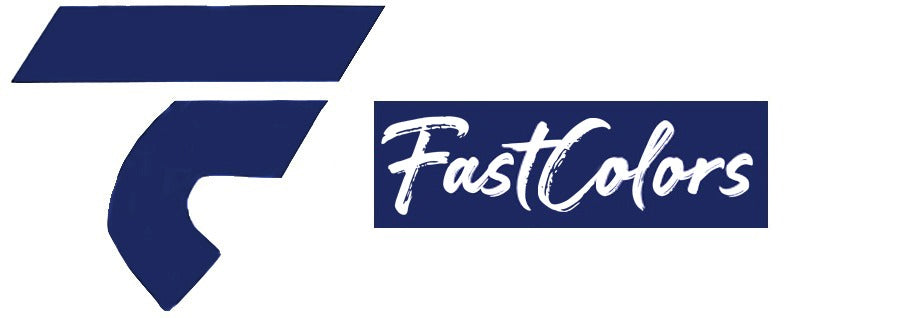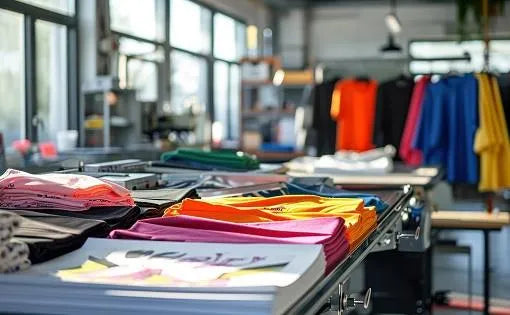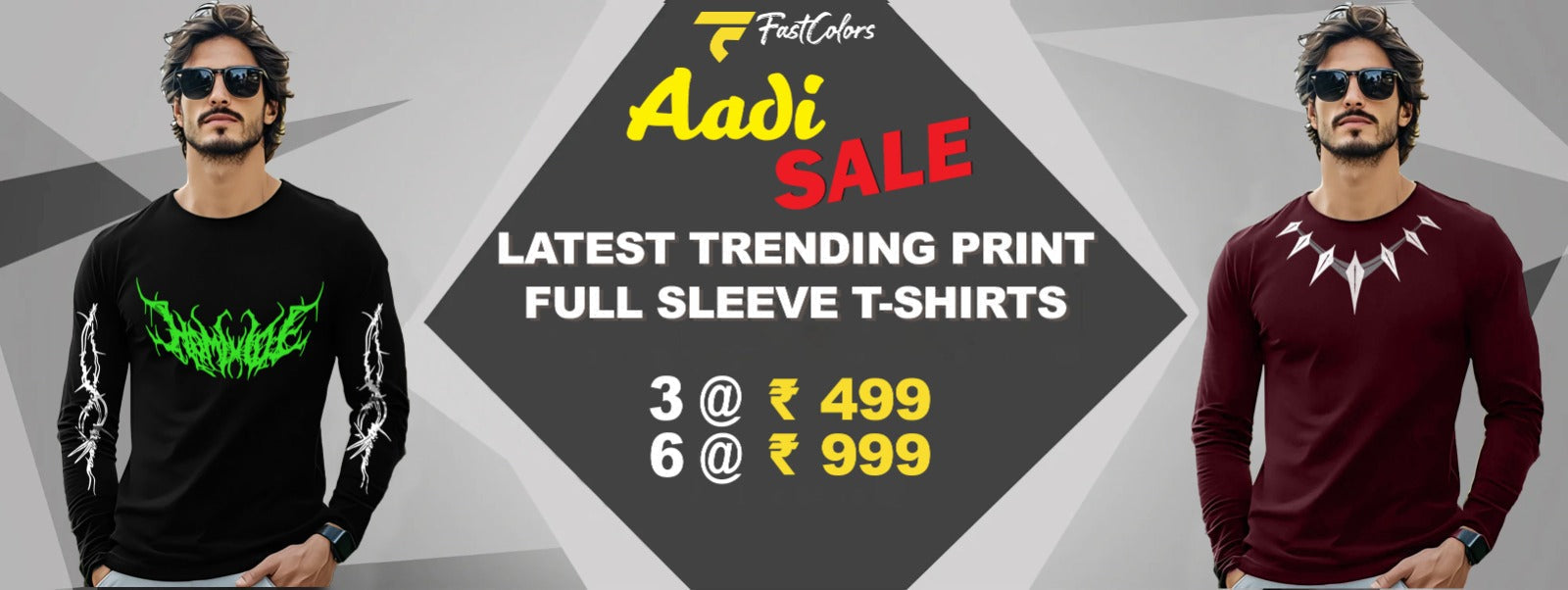Launching your own clothing line or scaling a t-shirt business starts with a crucial question: how to get t-shirts manufactured? The process involves more than choosing fabrics or selecting a print method.
It begins with sourcing raw materials and continues through pattern development, fabric cutting, stitching, printing, quality checks, and final dispatch.
Starting a T-Shirt Business? Learn the Manufacturing Process First
If you’re starting your own t-shirt brand or planning to sell custom tees online, one of the first questions you’ll have is:
how to start a t-shirt line
1. What Is Raw Material Sourcing and Why It Matters

Every quality t-shirt begins with raw cotton. In India, especially in manufacturing hubs like Tirupur, cotton yarn is the foundation of the t-shirt manufacturing process.
Brands can choose from combed cotton, organic cotton, or cotton-poly blends depending on the desired product quality.
What Happens in This Stage?
- Cotton Yarn Selection: Manufacturers select yarn based on the client’s needs. Combed cotton offers softness, while cotton-poly blends provide durability.
- Knitting the Fabric: The yarn is knitted into fabric using circular knitting machines. Single jersey is the most common type for casual and retail t-shirts.
- Pre-Treatment Process: The knitted fabric undergoes bio-washing and compacting to enhance feel, reduce shrinkage, and prepare it for cutting and printing.
2. Pattern Making and Fabric Cutting

What Happens in This Stage?
- Pattern Development: Computer-aided design (CAD) software is used to prepare size-wise patterns. These patterns act as blueprints for cutting.
- Marker Planning: Manufacturers create marker layouts to maximize fabric utilization and reduce waste, which helps control costs.
- Precision Cutting: Layers of fabric are stacked and cut using manual or automated machines. This ensures consistency across all panels including body, sleeves, and neck rib.
This stage impacts the structure, fit, and efficiency of your entire t-shirt production. Bulk t-shirt manufacturing relies on sharp precision to maintain quality even in large volumes.
3. Stitching: The Core of T-Shirt Durability and Fit

After cutting, all fabric panels go through the stitching department. This is where a t-shirt takes its final wearable shape. The t-shirt manufacturing process relies heavily on quality stitching because it determines how long the garment lasts, how comfortable it feels, and how clean it looks.
What Happens in This Stage?
- Rib Attachment: The neckline uses ribbed fabric, stitched using flatlock or overlock machines. A good rib finish prevents loose necklines and helps maintain shape after multiple washes.
- Shoulder Taping: Tapes are added along shoulder seams to reinforce high-stress areas. This prevents fabric distortion and tearing, especially in repeated wear and wash cycles.
- Body and Sleeve Joinery: Side seams, sleeves, and hems are stitched using overlock and flatlock machines. Overlock is used for joining pieces, while flatlock ensures a flat, irritation-free finish.
- Bottom Hem and Sleeve Cuff: Double-needle stitching is used here for added durability. It also provides a clean, retail-ready appearance.
In bulk t-shirt manufacturing, consistent stitching quality is a must. A custom t-shirt manufacturer will often share stitching specs, sample photos, or even videos so that you can inspect the finish before finalizing your order.
4. Printing and Customization: Making Each T-Shirt Your Own

Whether you are creating a logo-based streetwear line or running a merch drop, understanding the available t-shirt printing methods is essential when figuring out how to get t-shirts manufactured.
Available Print Methods:
- Screen Printing: Best for bulk orders. It produces long-lasting prints with vibrant colors and is cost-effective at scale.
- DTF (Direct-to-Film): A newer technology gaining popularity for its ability to print complex graphics on cotton and blend with high clarity.
- DTG (Direct-to-Garment): Ideal for small batches with detailed or multi-color designs. It prints directly on fabric using inkjet technology.
- Sublimation Printing: Used on polyester t-shirts, perfect for sportswear or all-over prints.
- Heat Transfer and Vinyl: Good for one-off designs, event merchandise, or small custom batches.
- Puff Printing: Adds a raised, 3D effect to your graphics. Commonly used in streetwear for branding elements or type-based designs.
- Embroidery: Offers a premium, tactile finish. Ideal for logos, patches, and durable branding on heavier GSM oversized t-shirts, hoodies or polos.
Each method serves a different purpose. The right one depends on your fabric, budget, design detail, and quantity.
Custom Branding Options:
- Neck Label Printing: Replace the manufacturer’s label with your brand name for a seamless, retail-ready finish.
- Woven Labels and Hang Tags: Add branded labels to sleeves, hems, or necklines. Include price tags or care labels as per market standards.
- Packaging Customization: Choose branded polybags, thank-you cards, or stickers for a complete unboxing experience.
This phase transforms a blank product into a marketable t-shirt. If you want private label t-shirts, always work with a t-shirt manufacturing company that handles in-house printing and branding. It reduces errors, lowers costs, and keeps your entire production process under one roof.
5. Quality Control and Checking

Before any t-shirt leaves the factory, it must pass through rigorous quality checks. This step ensures that each unit meets your brand’s expectations in terms of fit, fabric feel, stitching quality, and print accuracy.
It is one of the most critical parts of the t-shirt manufacturing process, especially in bulk orders.
What Happens in This Stage?
- Visual Inspection: Each t-shirt is checked for visible defects like stitching errors, stains, or misprints.
- Measurement Verification: A sample from each batch is measured against the approved size chart to confirm accuracy.
- Print & Embroidery Check: Printed and embroidered elements are reviewed for placement, color matching, and edge clarity. Puff prints are also inspected to ensure proper lift and finish.
- Label & Branding Review: Custom labels, neck prints, and packaging elements are reviewed for consistency.
A reliable t-shirt manufacturing company will share quality reports, sample photos, or even allow third-party audits before dispatch. Skipping this step often leads to customer returns and damage to your brand’s reputation.
For private label t-shirts, quality control becomes even more important. Your customer doesn’t know the factory , they only see your name. That’s why a trusted custom t-shirt manufacturer focuses heavily on finishing and detail.
6. Packing and Dispatching: From Factory Floor to Your Warehouse

What Happens in This Stage?
- Folding and Tagging: Each t-shirt is folded uniformly. If branding tags or barcodes are required, they are added at this stage.
- Packaging: T-shirts are packed individually in polybags or as bulk sets in boxes, depending on your requirement. For premium brands, eco-friendly or custom-printed packaging is also available.
- Sorting and Labeling: Orders are sorted by design, color, and size. Outer cartons are labeled clearly for easy inventory handling.
- Shipping Coordination: The final step is booking transport or courier services based on destination. This could be local delivery, domestic logistics, or international freight for global buyers.
A professional t-shirt manufacturing company will always provide tracking information, dispatch timelines, and assistance with shipping documentation if needed.
What Should You Look for in a T-Shirt Manufacturer?
When you’re trying to get t-shirts manufactured at scale, your choice of manufacturer will directly affect your brand’s product quality, delivery speed, and customer satisfaction.
Whether you’re a new label or managing multiple drops a month, choosing the right custom t-shirt manufacturer is a long-term decision , not just a price comparison.
Here’s what to evaluate before you lock in your production partner:
1. Fabric and Stitching Quality
Look for manufacturers who can back their quality claims with real samples. Fabric swatches, stitched samples, and even video walkthroughs of previous batches give you clarity.
- Ask if they use bio-washed cotton, double-needle stitching, and reinforced seams.
- Check if they offer swatches in different GSMs and blends.
2. Low MOQs with Sampling Options
Starting a brand or launching a new design shouldn’t require a 500-piece commitment. A flexible manufacturer will offer:
- Low minimum order quantities (as low as 10–50 pieces)
- Paid samples before bulk production
- The option to scale production gradually
This is especially important for bulk t-shirt manufacturing with seasonal or trend-based designs.
3. In-House Printing and Branding
- Screen printing, DTG, DTF, sublimation, puff print, and embroidery
- Custom neck labels, woven tags, and hang tags
- Brand-first packaging options
4. Timely Dispatch and Clear Communication
- Offers fixed timelines for plain and printed orders
- Gives you production updates and transparent communication
- Supports international shipping and full tracking
5. Support for Long-Term Growth
- Ability to handle repeat orders and larger volumes
- Consistent stock of your chosen fabric or styles
- A team that can advise on pricing, quality, and production planning
If you’re launching or scaling a t-shirt brand, the manufacturer you choose plays a big role in shaping your brand’s success. Don’t settle for low-cost alone , evaluate who can deliver reliability, flexibility, and quality that grows with you.
Why Choose Plain T-shirts India for Your T-Shirt Brand?

If you’re searching for a reliable and quality-focused partner to get t-shirts manufactured, Plain T-shirts India offers everything your brand needs, from raw material to sourcing t-shirts with retail-ready dispatch.
We’re not just a t-shirt manufacturing company, we’re a backend partner built to support fast-scaling D2C brands, custom merch creators, export buyers, and startups testing their first collection.
Here’s why hundreds of brands trust us to manufacture their t-shirts:
1. End-to-End Manufacturing Under One Roof
We manage the entire t-shirt production process , from fabric knitting and cutting to stitching, printing, and final dispatch. No third-party handoffs, no delays. Everything is handled in-house to ensure quality, accountability, and speed.
2. Customization That Builds Your Brand
We specialize in private label t-shirts with full customization options, including:
- Screen printing, DTG, DTF, sublimation, puff prints, and embroidery
- Neck label printing, woven label stitching, and branded tags
- Custom packaging for a complete brand experience
Whether you’re launching a streetwear brand or fulfilling bulk corporate orders, we make sure every piece reflects your identity.
3. Flexible MOQs, Fast Samples
4. Transparent Timelines and Real Support
We provide clear production timelines and full order tracking, so you’re never left wondering about your order status. Our team communicates openly and helps you troubleshoot anything from GSM selection to pricing strategy.
5. Tirupur-Based Quality, Served Worldwide
All our t-shirts are manufactured in Tirupur, the knitwear capital of India. This gives your brand the advantage of skilled labor, efficient infrastructure, and access to high-grade raw materials.
We support both domestic and international shipping with the same commitment to quality and speed.
If you’re serious about scaling a brand with consistent quality, fast production, and low MOQs, Plain T-shirts India is built for you.
Final Thoughts: Start Your T-Shirt Brand with Confidence
Learning how to get t-shirts manufactured is the first real step in turning your designs into a tangible brand. Whether you’re launching your first drop or scaling up for a new collection, the key lies in working with a manufacturer who understands your goals, not just your order.
If you’re ready to start, we’ll walk you through every step of the t-shirt manufacturing process and provide samples, timelines, and support from day one.

Low MOQs. Fast Samples. Full Customization.
Reach out now to get your first batch of t-shirts manufactured with us.
Read our Popular Blogs:
Popular Keywords:
Visit Our FastColors Store:




